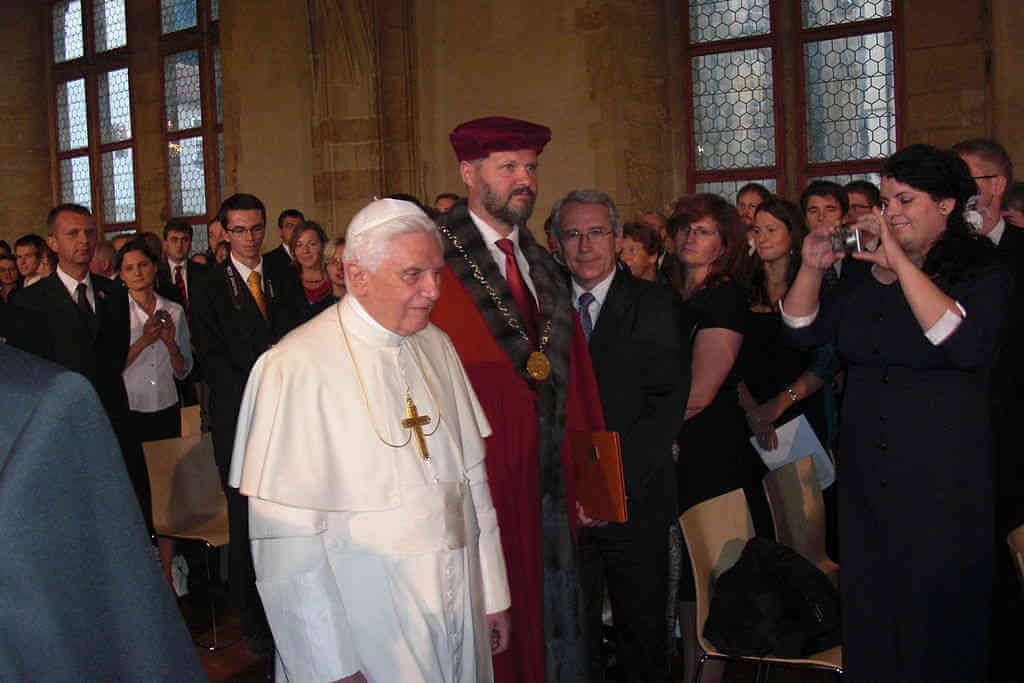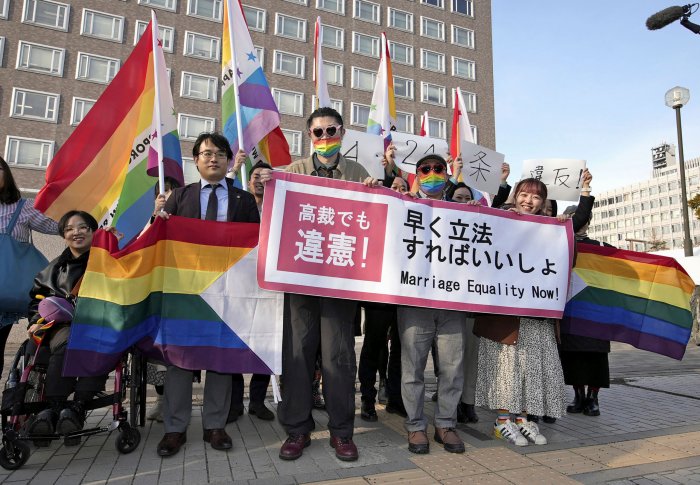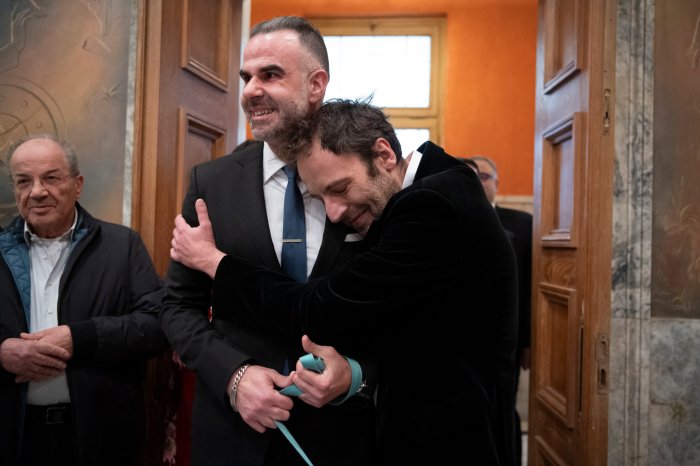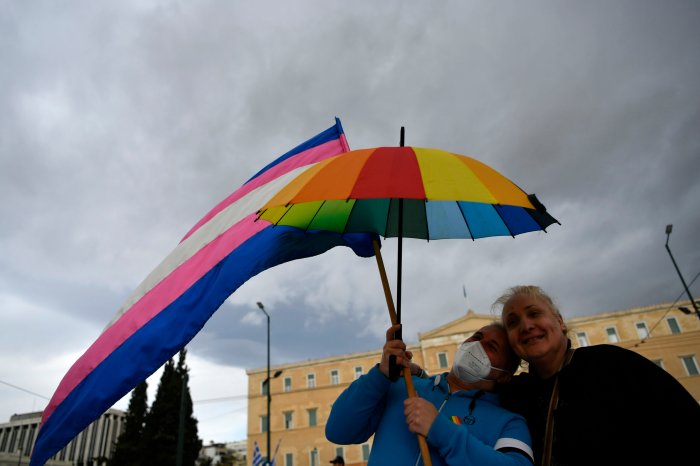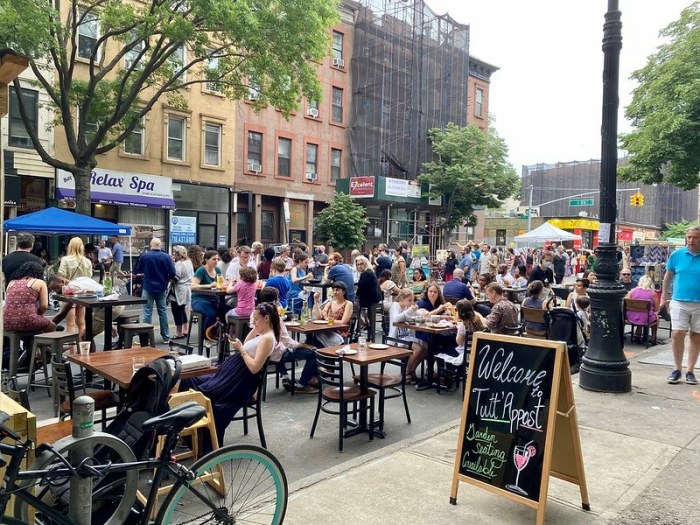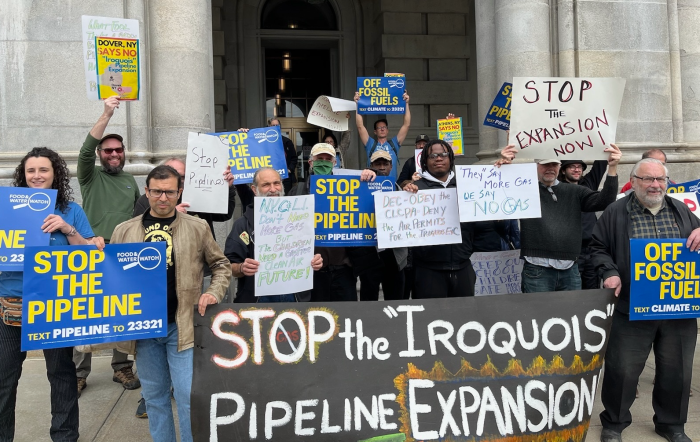Former Pope Benedict XVI broke his years-long silence on April 10 with a 6,000-word letter in which he blamed child sex abuse in the Catholic Church on the sexual revolution of the 1960s and said “homosexual cliques” were responsible for changing the climate in seminaries, prompting strong criticism from LGBTQ Catholic groups, leaders, and abuse victims.
Benedict’s comments, translated by the Catholic News Agency, piled on to the Church’s ongoing crisis over clerical sex abuse and followed a recent trend among some Catholic leaders to scapegoat LGBTQ folks in the wake of the Pennsylvania Supreme Court’s naming of hundreds of priests in an investigation of child sex abuse.
“It could be said that in the 20 years from 1960 to 1980, the previously normative standards regarding sexuality collapsed entirely,” Benedict argued in his essay before adding that the revolutionary years of the 1960s gave way to pedophilia that was “then also diagnosed as allowed and appropriate.”
Also in the 1960s, Benedict said “homosexual cliques” were established among candidates seeking to become priests, and he pointed to a seminary in southern Germany where he said candidates lived together and sometimes were accompanied by their wives and children. That setting, he wrote, “could not provide support for preparation to the priestly vocation.”
“The Holy See knew of such problems, without being informed precisely,” said Benedict, who resigned in 2013, citing a lack of “strength of mind and body” due to his age. “As a first step, an Apostolic Visitation was arranged of seminaries in the United States.”
In interviews with Gay City News, LGBTQ Catholics swiftly condemned Benedict’s blame game and allegations against gay priests. Francis DeBernardo, who is the executive director of New Ways Ministry, a national LGBTQ Catholic organization, said the essay “does not deal with reality at all.”
“Those are accusations that can be made with no proof behind them,” DeBernardo said. “They’re just red herrings that he throws out to scapegoat gay men in the priesthood — but with no evidence. Benedict is responsible for this greatly.”
Other LGBTQ Catholics who have served in leadership roles in the Church also pushed back strongly on Benedict’s comments. Aaron Bianco, an out gay former pastoral associate at a Catholic Church in San Diego who was driven to resign after he suffered harassment and threats from alt-right Christian news sites following the release of the Pennsylvania report, was surprised by Benedict’s essay.
“I am shocked that he would write up a piece that once again blames everything other than the Church,” Bianco said. “He is blaming the ’60s and all of this instead of looking into his own house in finding out why he’s ordaining men who are pedophiles and abusers.”
Bianco has been involved with the Church for years and has personal experience in the seminary in Rome. He has noticed that there have historically been a “good number” of gay men in the priesthood, but he said the notion that there is a “homosexual mafia” in the Church is yet another baseless talking point pushed by conservatives — and he worries that the alt-right could seize the narrative and run with it.
“If they go out and print that all these priests are homosexuals and pedophiles and we have to stop this mafia, they drum up support for those like-minded people,” he said. “We all know homosexuality has nothing to do with pedophilia. The day before [the essay was published], a bishop in India was brought to court for raping a little girl.”
He continued, “We play this game that we’ll blame homosexuals instead of blaming the Church for ordaining and keeping men they know are pedophiles.”
Michael Meenan, who was sexually abused in the 1980s by both a religious studies teacher while he was in high school at Fordam Prep and by a parish priest in the Bronx, stressed the immediate need to remove abusers from the Church. Making a careful distinction between pedophiles and gay priests, he said that pedophiles have “infiltrated” the Church “like terrorists” and the Vatican has no idea how to get them out.
“Law enforcement must act immediately and they must be the entities by which these criminals are removed from the Catholic Church,” he said. “By that, those who sexually abuse children in the Catholic Church must be prosecuted and incarcerated.”
Meenan, a former deputy editor at Gay City News who went on to work as a reporter for NY1 and the New York Times, revealed last year the years-long abuse he suffered at the hands of that parish priest, Jon Jenik, who went on to become an auxiliary bishop and was subsequently removed from that post in the fallout over the abuse allegations. Meenan had told Fordham Prep officials of the abuse he suffered at that school within one year after it happened, but it took more than three decades for officials to take action.
Meenan believes that gay priests, on the other hand, could improve the culture of Catholic Schools if they were to lead with authenticity.
“A young boy or girl should be so lucky to have an out gay man or an out gay woman teaching them because they have the benefit of having such a positive role model, whether or not the child is gay or straight or regardless of sexuality. The fact that we have gay priests in our schools is the worst kept secret that the Catholic Church has ever tried to hold.”
And while Benedict described the 1960s as an era that represented a stain on history, Meenan said the modern LGBTQ rights movement — which most prominently was sparked in that era by the Stonewall riots of 1969 — helped lead to the disclosure of sex abuse in the Church, even if the Pope and key Catholic leaders would never admit that.
“The struggle for equality has also been a struggle for justice for people sexually abused by members of the Catholic Church,” he said.

